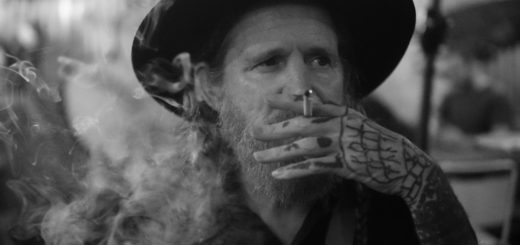The Doorstep
Jon was five years young.
In those years in England, children of six would walk themselves home from school. But for the first year of school, the front of the school would mill with a busy crowd of mothers and prams, waiting to pick up their precious and precocious little ones. A crowd of caring.
But not for Jon. Not on that day of a lingering summer. He did not see his mother and younger brother. As he searched for their faces, no sense of panic. He was capable and coping. He took care of himself.
He had always taken care of his brother too. Far too much, and far too young. He gave care, but did not receive it, from his earliest recollection in the care of the authorities. When they had come for them as neglected children, and put them in a home with other cast-aside children. He would be left in charge of his brother at less than three, while his mother went to London to have fun in the city. The neighbours had reported her, and for good reason.
As she surrendered them to the authorities, she promised with tears in her eyes to come for him. He didn’t believe her, and perhaps didn’t care. This was no longer a betrayal, it was the start of a new adventure.
It wasn’t for long, few memories endure. He could talk, his brother couldn’t communicate (except with him), so he did the talking. Their mother visited, and gave them toys she had made in therapy in the mental ward she was sent to. He was protected from the knowledge and shame of her hospitalisations for a few years. The horrors of the future were yet to come.
In the magical way of the world peopled by people of authority, the time came to come home. To meet a stranger, the replacement step-father for the father who had deserted them before memories formed. A nervous replacement, as the social services saw him as a source of stability for an unstable mother. Not yet married, but he had been present in court for the adjudication, where children were present only in their absence.
Return now to the scene of the school entrance. Jon waited patiently. Eventually he realised that he was not, in fact, alone. One woman remained, poised toward him. Eventually, she asked where was his mother? Was he expecting her?
With a sense of cloaked shame he admitted that he was. No explanation occurred that could match the awful truth – that he was simply deserted by a self-absorbed mother who could only care for him when he was in sight. She asked if he knew his way home? Used to roaming far-and-wide unsupervised with his brother, he knew the mile distance to home well.
Taking this as his cue, he left; not realising that the woman would take him under her wing and accompany him. He had not asked her, and felt a moment of shame (and irritation) that she felt she had to. But he welcomed her company, unaccompanied by his usual partner-in-crime, his brother. Eventually they arrived at the apartment complex where he lived. He assured her that he could be on his own, now that he was home.
Time passed without passing, at the top of the concrete steps, alone with himself. Fifteen minutes, three hours? Eventually brother and mother returned. No explanation.
And when the no longer strange stranger-father arrived, the recriminations started. Who had opened the milk bottles on the doorstep? He had not even any memory of doing so, why was this the furor of the moment? “We are not angry with you” was not the message heard in the accusation – what of the betrayal of trust, that he was not picked up at school, like all the other kids? A feeling of shameful otherness of family sprouted, never to be shaken.
Many years in the future, he spoke to his mother of the incident, an off the hand “do you remember” that held him in by the throat.
She passed it off with a laugh, “Yes I remember, I just was having such a time with your brother that I forgot.”
The betrayal continued.
Jon was five years old.


